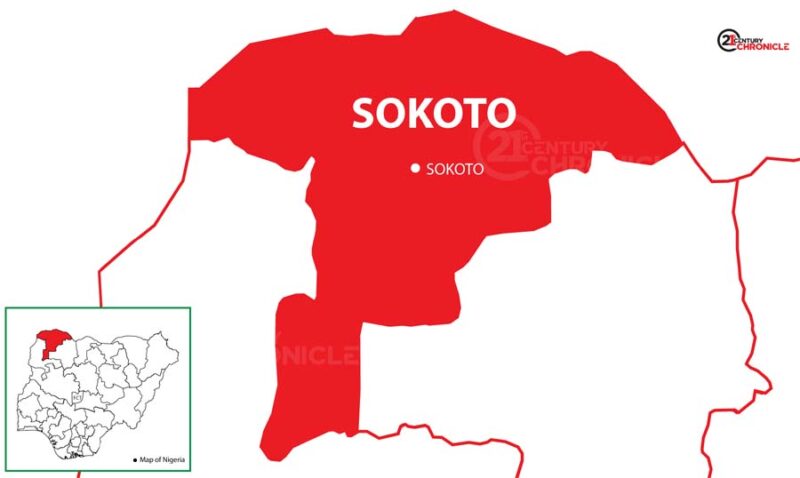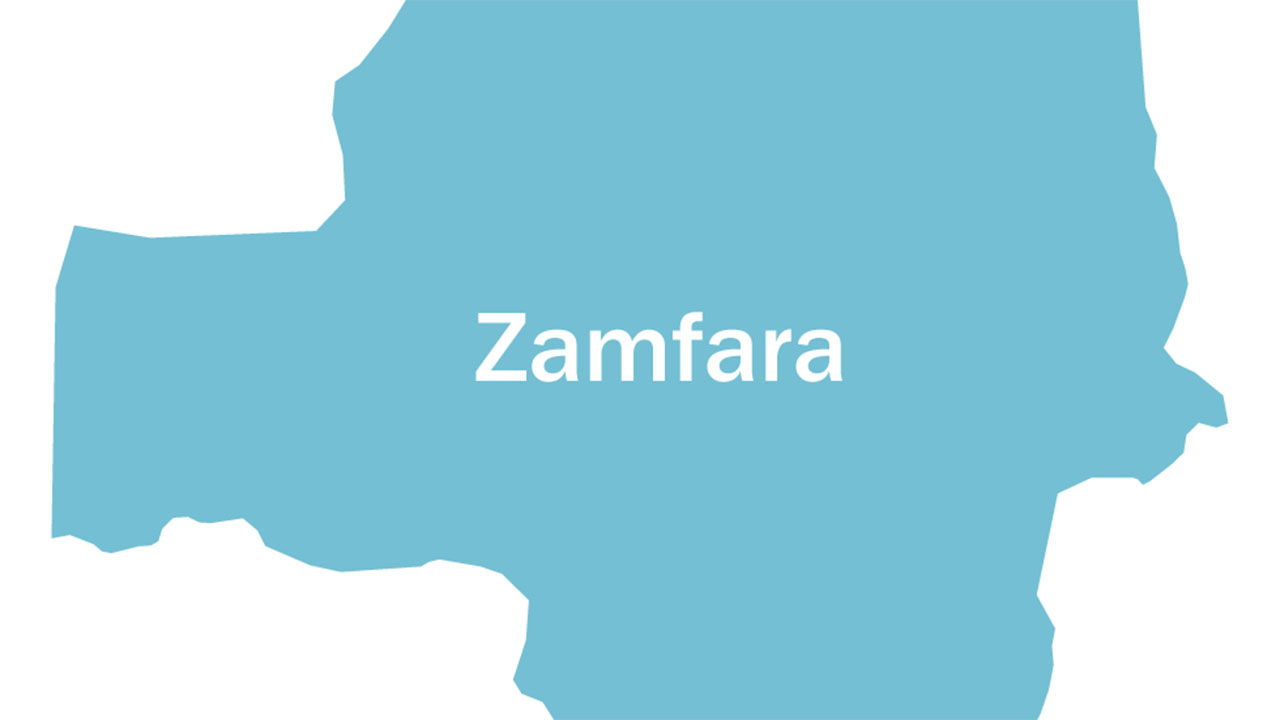metro
Concerns for Nigeria, others as ISWAP set to use drones, advanced tech in Lake Chad Basin

Concerns for Nigeria, others as ISWAP set to use drones, advanced tech in Lake Chad Basin
Islamic State West Africa Province (ISWAP) could be close to using delivery drones for attacks in the Lake Chad Basin. Weaponising and adapting unmanned aerial vehicles (UAVs) is a new trend in the group’s operational strategy, and could worsen the conflict.
Institute for Security Studies (ISS) research shows that ISWAP is already trialling delivery drones to carry improvised explosive devices. This includes assessing the weight that can be carried, how far they can go and how long they stay in the air. The threat goes beyond military targets and may impact humanitarian service delivery.
Ongoing operations by Nigeria’s military and clashes with Boko Haram faction, Jama’atu Ahlis-Sunna Lidda’Awati Wal-Jihad (JAS), have inflicted heavy losses on ISWAP and significantly reduced its space to operate. And successful intelligence-driven strikes resulting in arrests of ISWAP members outside the North-east are preventing the group from expanding. These setbacks may be forcing ISWAP to adapt its strategy, as it has done before.
So far, ISWAP’s use of drones has been limited to propaganda, surveillance and communication. ISS research, including analysis of publicly available propaganda materials and interviews with former combatants and associates, reveals an elaborate use of communication technology (see Chart 1). This includes satellite and android phones, drones, social media (Telegram and WhatsApp), high-speed printers, laptops, high-definition digital cameras, Wi-Fi, clip-on microphones, walkie-talkies, and data compression and archiving software.
READ ALSO:
- Peter Obi’s Animal Farm (I)
- Police quiz 2 student leaders over killing of 500-level OAU student
- Tinubu, Biden, Messi listed among world’s 100 most influential people
- Troops intercept 2,000 rounds of ammunition in Birnin Gwari
All these tools are used by the media team headed by Abba Yusuf (Abu Rumaisa), son of late Boko Haram founder Mohammed Yusuf. The team’s primary function is to showcase ISWAP as a successful jihadist group. That propaganda will encourage recruitment and present a positive image that cements its position as the top Islamic State affiliate globally. The media department also handles relations with other violent extremist groups, including Islamic State.
Former ISWAP members, including from the media unit, told ISS how the department functions. Staff are recruited from within the group and taught the basics of operating the equipment, mostly cameras. They accompany fighters and wait at a distance to be invited to take photos and videos, usually when things go ISWAP’s way.
The raw footage and pictures are sent to Islamic State, which produces the propaganda material. The group shares the content with ISWAP’s media team, which distributes it through a private and members-only Telegram account, Nashir News Agency (see Chart 2).
ISWAP relies heavily on high-speed satellite internet to communicate with Islamic State and other groups. Sources told ISS that ISWAP used Thuraya Wi-Fi and spent about $6,000 monthly on data. They said Lagos was the main supply source but that ISWAP encountered a problem with the supply, forcing it to switch to Chad. Although Thuraya satellite phones and internet services are illegal in Chad, they are used in secret.
A particular Thuraya model stands out as a possible device used by ISWAP. It is available in Nigeria but mainly in Lagos. The Thuraya XT-Hotspot is marketed as the ‘world’s fastest Wi-Fi via satellite for communication needs beyond GSM coverage … for quick and secure Internet connectivity in the remotest of locations.’
The sources claim ISWAP has dedicated vehicles fitted with internet services to facilitate communication and data sharing on the go. The media team uses one of these vehicles when it accompanies fighters, enabling them to immediately share material from the battlefield. This explains how ISWAP can release information quickly, including images and videos, sometimes within hours of attacks.
ISWAP’s public communication also suggests it can easily share data with Islamic State using data compression and archiving software. In addition to speed and encryption, the software reduces bandwidth costs.
READ ALSO:
- UK govt yet to apologise, Obi counters Atiku’s aide
- UK has apologised to Obi over detection, says Atiku’s aide
- BREAKING: CBN to mop up dormant accounts, unclaimed balances in banks
There is no single way to deal with the problem of ISWAP’s use of technology. The solution lies in various measures working together.
ISS research has detailed how ISWAP exploited Lake Chad Basin trade routes to get vital supplies. The group’s remote location should be an advantage for security forces who could disrupt its supply lines. Checkpoint searches have proved successful and can be used again. Those bringing in equipment and accessories should explain their destinations, which security agents should verify. Collaboration among security forces in the four affected Lake Chad Basin countries can help.
The ISS report also showed how civilian and military collaborators helped ISWAP get supplies. Security force leaders in the region must hold their personnel to the highest standards and use an independent ombudsman to deter corruption. To prevent civilians from collaborating with terror groups, authorities should work with communities and trade unions to identify and disrupt networks helping ISWAP. The criminal justice system can also play a deterrent role.
A future concern is that violent extremist groups like ISWAP become involved in cybercrime. Given Nigeria’s enormous financial powers and growing tech industry, authorities should prepare for this. Investing in technology and collaborating with tech companies to prevent their products, platforms or services from falling into ISWAP’s hands is a start.
Going after ISWAP’s money is vital. The group should be forced out of its current location using targeted and joint military operations. This would cut ISWAP’s access to its major revenue base. In using these tactics, care should be taken to avoid adversely affecting civilians, either by destroying their livelihoods or inflicting human rights violations.
Curtailing ISWAP’s access to technology will prevent it from using tech to plan and execute attacks, spread propaganda and recruit. That will reduce the damage the group inflicts on civilians and aid workers in the Lake Chad Basin.
Concerns for Nigeria, others as ISWAP set to use drones, advanced tech in Lake Chad Basin
premiumtimes
metro
Sokoto governor axes 15 district heads over insecurity, others

Sokoto governor axes 15 district heads over insecurity, others
Sokoto State Government has sacked nine district heads for allegedly aiding insecurity and encouraging land racketeering.
The state government also sacked another six district heads said to have been irregularly appointed by the immediate past government of the state.
Abubakar Bawa, the Press Secretary to Governor Ahmed Aliyu, announced this while briefing newsmen on the development on Tuesday.
Those axed over alleged insecurity are the district heads of Unguwar Lalle, Yabo, Wamakko, Tulluwa, llela, Dogon Daji, Kebbe, Alkammu and Giyawa.
Bawa said the six district heads were dropped because of the way they were haphazardly appointed and their rejection by their people.
The affected six district heads are Marafan Tangaza, Sarkin Gabas Kalambaina, Bunun Gongono, Sarkin Kudun Yar Tsakkuwa, Sarkin Tambuwal and Sarkin Yamman Torankavwa.
“The cases involving District Heads of Isa, Kuchi, Kilgori and Gagi have been re commended for further investigations,” Bawa added.
However, Sarkin Yakin Binji, senior counselor in the Suktanate Council, was transferred to Nabunkari while the District Head of Sabon Birni was deployed to Gatawa.
Bawa said this followed the recommendations of the Committee on the Review of the appointments of Traditional rulers, Renaming of Tertiary Institutions and the Dissolution of Governing Boards of State Parastatals.
metro
Passengers overpower bandits in Zamfara

Passengers overpower bandits in Zamfara
In a courageous act, the family of a bride-to-be and a group of passengers thwarted a kidnapping attempt by killing a terrorist in Zamfara State.
PRNigeria reports that the incident unfolded when the family of the bride-to-be and other travellers were ambushed by bandits along the Talata Mafara-Gusau highway.
The bride’s family had embarked on a journey to purchase clothing and other wedding materials in Kano. However, their plans took a harrowing turn when armed bandits targeted them.
An eyewitness, who spoke to PRNigeria, revealed that the response was spontaneous once the bandits had selected their victims.
Despite one of the bandits managing to escape, the brave passengers captured two AK-47 rifles.
READ ALSO:
- Emefiele spent N18.9bn to print N684.5m notes, says EFCC
- Rebuild mosque converted to market, MURIC tells Plateau leaders
- CBN sells dollar to BDCs at N1,021/$1
Narrating how the events unfolded, the eyewitness said: “A few kilometres away from the Fangal Tama checkpoint, the travellers heard gunshots echoing all around.
‘’To their shock, they encountered two well-armed bandits on motorcycles, blocking the road and halting vehicles.
“The bandits immediately ordered the young woman (the bride-to-be), her father, mother, and two other relatives to exit their car.
‘’With guns pointed at them, the terrified family members were coerced to follow the bandits into the nearby forest.
“Realising the grave danger they faced in forced abduction, the passengers decided to act swiftly. They rallied together and launched an attack on one of the two bandits.
‘’In a fierce struggle, they managed to overpower him, resulting in his instant death. The other bandit, however, escaped, leaving behind his firearm.
“The courageous group retrieved the two guns and emerged from the forest. They promptly handed the weapons over to the military at a nearby checkpoint.’’
Passengers overpower bandits in Zamfara
metro
BREAKING: EFCC freezes 300 illegal forex accounts

BREAKING: EFCC freezes 300 illegal forex accounts
The Economic and Financial Crimes Commission has frozen 300 illegal forex accounts trading on a peer-to-peer platform.
The EFCC Chairman, Ola Olukoyede, revealed that the accounts were suspended on Monday following a court order.
READ ALSO:
- CBN sells dollar to BDCs at N1,021/$1
- Just in: Ex-Imo Gov Ihedioha heads for LP, dumps PDP
- Policeman shot dead corps member at LAUTECH convocation party
Speaking in Abuja on Tuesday, Olukoyede explained that over $15bn passed through one of the forex platforms in the last one year, outside the financial regulations.
He said the EFCC action was taken to ensure the safety of the foreign exchange market and protect the economy.
BREAKING: EFCC freezes 300 illegal forex accounts
-

 Education4 days ago
Education4 days agoWhy we charge N42m fees for primary school pupils — Charterhouse Lagos
-

 Auto4 days ago
Auto4 days agoWe expect massive roll-outs of Nigeria-made cars by December 2024 – Minister
-

 News5 days ago
News5 days agoUpdated: More trouble for Yahaya Bello as Immigration places him on watch list
-

 metro7 days ago
metro7 days agoEdo court sentences three to death by hanging for kidnapping, murder
-

 International5 days ago
International5 days agoUpdated: Tragedy hits Kenya, Defence chief, nine others die in military helicopter crash
-

 metro4 days ago
metro4 days agoJUST IN : Borrow pit collapses, kills seven Qur’anic school pupils
-

 News3 days ago
News3 days agoWe’re not part of Yoruba Nation agitation, says MKO Abiola family
-

 metro2 days ago
metro2 days agoHow gunmen killed Babcock university lecturer, abducted two – Police




















